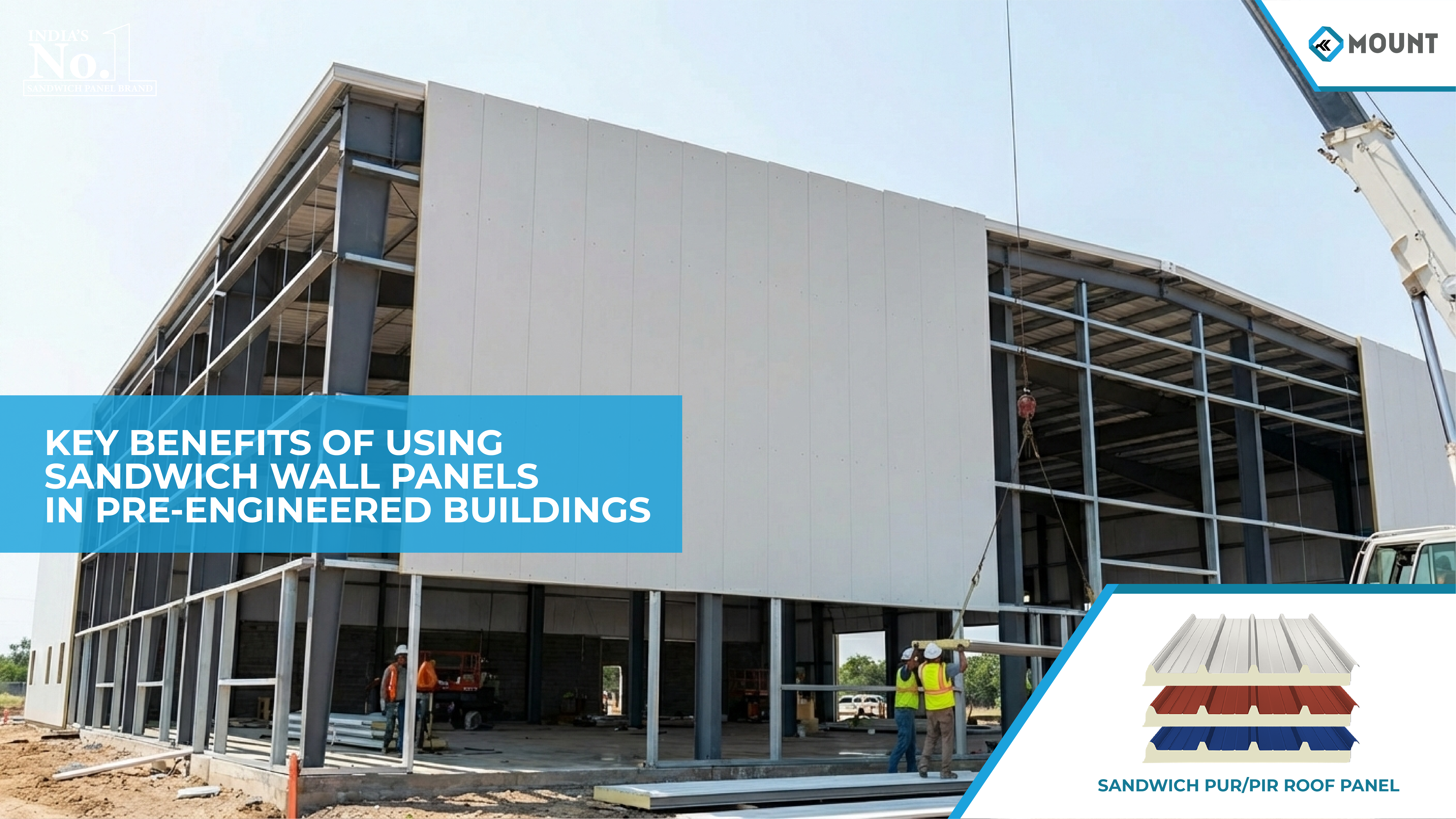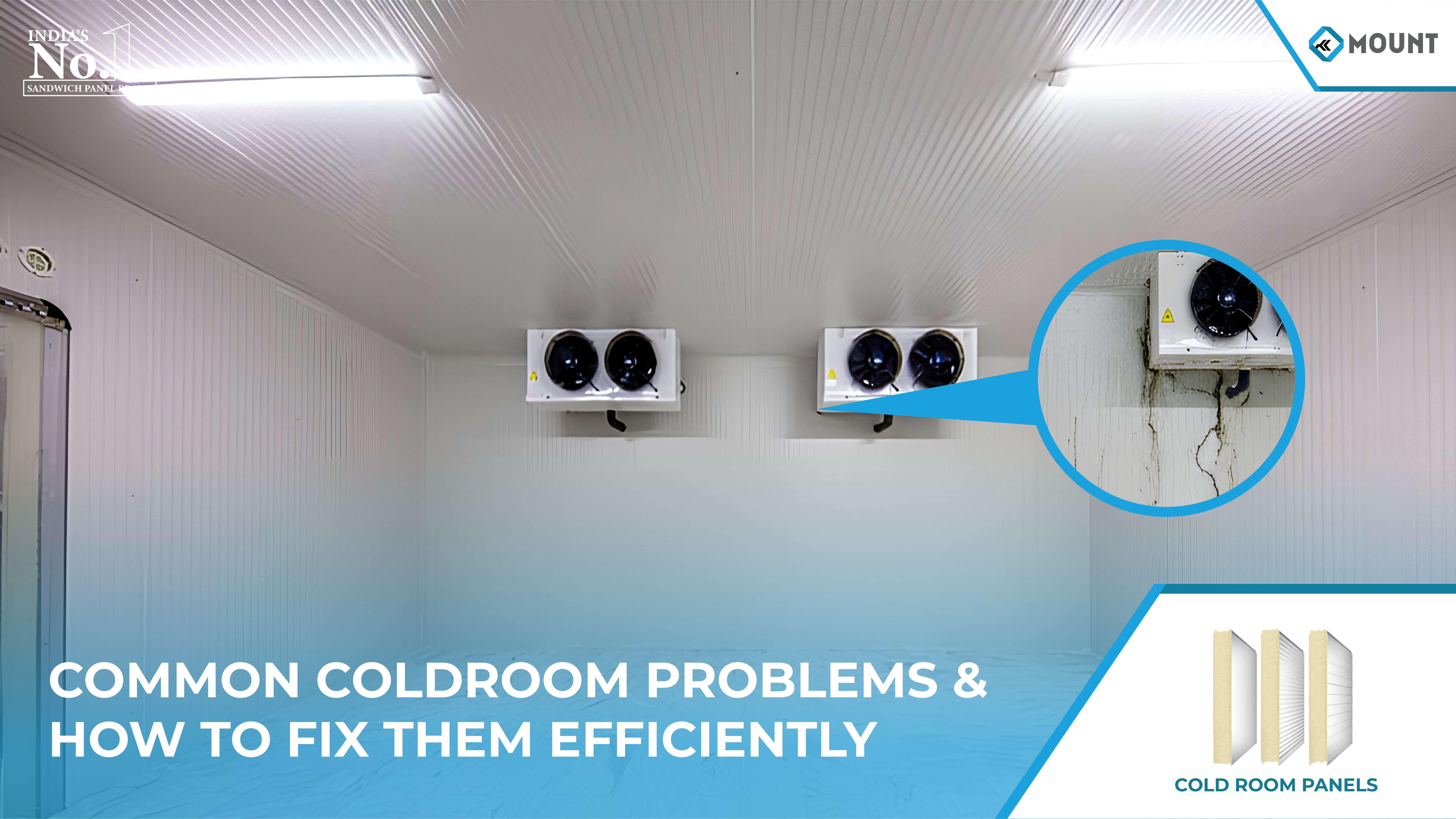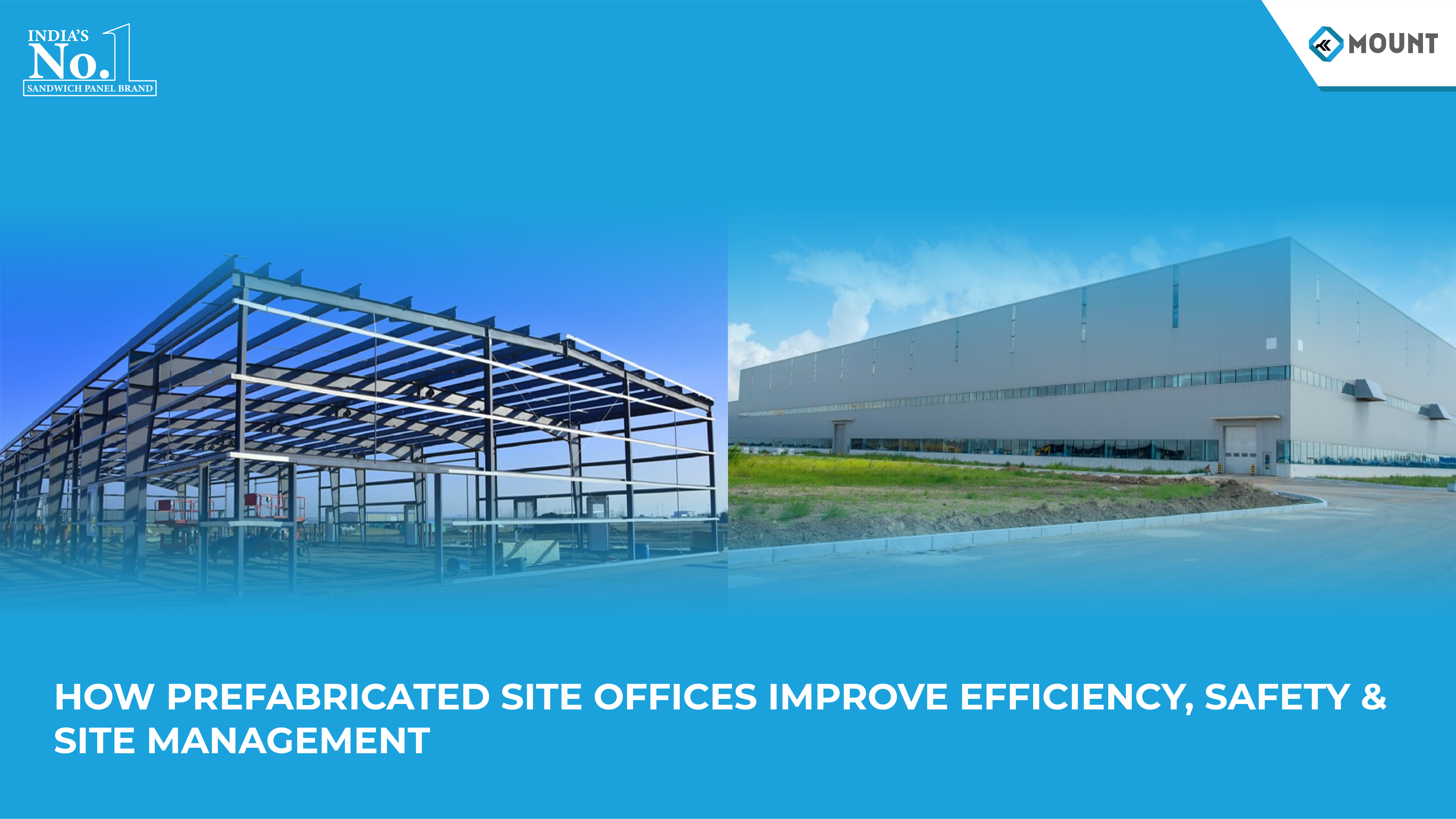
Sandwich PUF Panel Market Outlook 2026–2033: Trends, Growth & Forecast
The construction industry stands at a pivotal juncture where sustainability meets innovation. PUF Panels are experiencing unprecedented growth momentum, transforming modern building practices with their exceptional thermal insulation, lightweight characteristics, and structural efficiency. As infrastructure demands intensify and energy regulations tighten across India, businesses increasingly recognise these panels as essential components for future-ready construction. The market is poised for remarkable expansion through 2033, driven by urbanisation, green building mandates, and technological breakthroughs. At Mount, we’re committed to delivering cutting-edge solutions that align with industry evolution and environmental stewardship while meeting the diverse needs of construction professionals nationwide.
Market Growth Drivers and Projections
India’s construction sector is predicted to experience substantial growth, driven by increased urbanisation and industrialisation. Infrastructure projects across residential, commercial, and industrial sectors create significant demand for advanced insulation materials that meet stringent energy efficiency standards.
Sandwich PUF panels feature a polyurethane foam core layered between two rigid facing materials, typically metal such as steel or aluminium, though fibreglass, plastic, or plywood alternatives exist. This innovative construction delivers unmatched thermal performance, potentially reducing energy consumption significantly compared to conventional building materials. The Indian market benefits from large-scale infrastructure projects and rising government subsidies for construction activities, particularly in rural development initiatives.
Applications Across Multiple Sectors
Cold Storage and Temperature-Controlled Facilities
Cold storage facilities, refrigerated warehouses, and walk-in refrigerators rely extensively on PUF Panels for maintaining stable temperature environments. India’s growing agricultural export sector and pharmaceutical industry demand precise temperature control. The exceptional insulating capabilities preserve the quality of perishable goods, including food products, medicines, and temperature-sensitive materials throughout the supply chain.
Industrial Buildings
Manufacturing plants, production facilities, and industrial complexes utilise Wall PUF Panels for their versatility, energy efficiency, and cost-effectiveness. The insulating properties create thermally efficient environments that enhance worker comfort and operational efficiency. India’s expanding manufacturing sector, including textiles, automotive, and electronics industries, increasingly adopts these solutions for rapid construction and superior performance.
Commercial Structures
Retail outlets, office complexes, shopping centres, and hospitality establishments incorporate these panels for aesthetic flexibility and functional performance. The smooth finish accommodates various coating options while maintaining superior insulation standards. Modern commercial developments in metropolitan cities appreciate the quick installation process that minimises business disruption during construction phases.
Residential Construction
Modern housing projects embrace PUF Sandwich Panels to achieve energy-efficient homes that substantially reduce utility expenses for homeowners. The Indian residential sector, particularly in urban and semi-urban areas, favours these materials for standardisation capabilities and faster project completion. Affordable housing initiatives and smart city projects benefit from the reduced construction timelines these panels enable.
Agricultural Applications
Poultry farms, dairy operations, and controlled-environment agriculture facilities require precise climate management for optimal productivity. Roof PUF panels maintain consistent temperatures while protecting against India’s diverse weather conditions, from extreme heat to monsoon rains. These controlled environments support year-round production, directly improving livestock health and crop yields.
Technological Advancements Shaping the Market
Innovation continues to enhance panel performance characteristics across multiple dimensions. Advanced fire-retardant formulations now meet stringent safety codes without compromising insulation values, addressing critical concerns about building safety regulations. Research and development activities focus on creating panels with improved insulating qualities and environmental sustainability.
Manufacturers develop diverse PUF Panel Thickness options ranging from 20mm to 200mm, allowing customisation for India’s varied climate zones from coastal humidity to northern cold regions. This flexibility enables architects and engineers to specify optimal solutions for each project’s unique thermal performance needs.
Smart manufacturing techniques have optimised production efficiency while maintaining rigorous quality standards. Automated core injection systems ensure uniform density distribution, eliminating weak spots and extending service life significantly. Surface treatments now offer enhanced UV resistance and colour stability, crucial for India’s intense sunlight conditions.
Foam Density Options and Performance
Lower-density foam characterises panels that are lighter and suitable for applications where structural load considerations and ease of handling are essential. These panels provide excellent thermal insulation while offering advantages in residential buildings and projects prioritising cost-effectiveness.
Higher-density foam indicates panels with enhanced structural rigidity and superior insulating properties. Increased density provides greater load-bearing capability, making these panels appropriate for demanding applications in commercial and industrial buildings. Industries requiring long-term durability, such as cold storage facilities or heavy industrial structures, prefer these specifications.
Supply Chain and Market Accessibility
The distribution network for construction materials has evolved significantly across India, improving accessibility for contractors and developers in tier-1, tier-2, and tier-3 cities. Prospective buyers can efficiently locate reliable PUF Panel Dealer networks through digital platforms and industry directories. Regional supply chains have strengthened, reducing lead times and transportation expenses for project managers.
Transparent pricing structures help contractors budget accurately, with PUF Panel Price influenced by factors including thickness specifications, surface finishes, foam density, and order quantities. Volume purchases typically yield favourable terms, making these solutions economically viable for projects of all scales from residential developments to massive industrial complexes.
Sustainability and Environmental Impact
Green building certifications increasingly recognise the environmental advantages of polyurethane foam panels. Energy savings achieved through superior insulation directly reduce carbon footprints over a building’s operational lifetime. India’s commitment to sustainable development and climate goals makes efficient insulation materials critical for the construction sector.
Manufacturers are developing recycling programs for end-of-life panels, addressing circular economy principles and waste reduction goals. Production processes have become cleaner with water-based adhesives and reduced volatile organic compound emissions. These improvements align with corporate sustainability commitments and regulatory compliance requirements. Environmental awareness drives demand for materials that balance performance with ecological responsibility.
Quality and Performance Standards
Selecting appropriate solutions from PUF Panels Manufacturer involves evaluating long-term performance versus initial investment. Quality panels from reputable manufacturers deliver decades of reliable service with minimal maintenance requirements. Durability, chemical resistance, corrosion resistance, design flexibility, and excellent performance at elevated temperatures characterise premium products.
The PUF Roof Sheet market continues to expand as builders recognise the comprehensive benefits these systems offer. From rapid installation to superior thermal management, the advantages extend throughout the building lifecycle. India’s infrastructure development trajectory creates sustained demand for innovative construction materials that accelerate project timelines while meeting stringent performance standards.
Frequently Asked Questions
Q1: What is the typical lifespan of sandwich PUF panels in Indian climate conditions?
A: When properly installed and maintained, quality PUF panels deliver 25-30 years or longer of reliable service with minimal degradation in insulation performance. They withstand India’s diverse weather patterns, from extreme heat to heavy monsoons, effectively.
Q2: How do PUF panels perform during monsoon seasons?
A: PUF panels offer excellent moisture resistance, making them ideal for India’s monsoon climate. The sealed core prevents water infiltration, maintaining insulation properties and structural integrity even during heavy rainfall periods.
Q3: What factors should I consider when selecting panel thickness for Indian projects?
A: Climate zone requirements, building usage patterns, local energy codes, and budget constraints influence optimal thickness selection. Coastal areas may require different specifications than northern regions. Consultation with technical specialists ensures appropriate specifications.
Q4: How does foam density selection impact project outcomes in industrial applications?
A: Lower density panels suit applications prioritising lightweight installation and cost-effectiveness, while higher density options provide enhanced structural strength and insulation performance for demanding industrial and cold storage environments. Project-specific requirements determine optimal specifications.
Conclusion
The sandwich PUF panel market in India presents compelling opportunities for stakeholders throughout the construction value chain. Infrastructure expansion, energy efficiency mandates, and technological innovation converge to create favorable conditions for sustained growth through 2033. The remarkable insulation properties, installation efficiency, and versatility of these panels address critical industry needs across residential, commercial, industrial, and agricultural sectors. At Mount, we remain dedicated to advancing panel technology and delivering solutions that empower our clients’ success in India’s dynamic construction market.


